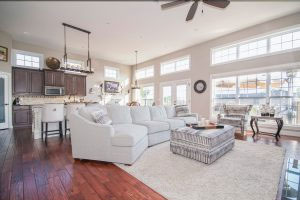
By 2035, the number of seniors in the U.S. is expected to hit 78 million (almost a third of the country’s population), according to a 2018 U.S. Census Bureau report. In a recent housing market forecast for 2020 prepared by AZRE, it’s predicted that the senior housing market will continue to heat up. Assisted living care makes sense for many seniors in comparison to high-level nursing home care facilities, mainly because of costs.
However, there have been mixed reactions about the presence of home-based elder care facilities in Valley neighborhoods. While residents may be disgruntled at the idea, the homes are protected under the Federal Fair Housing Act of 1986, which states that people with any physical or mental disabilities (including seniors) are a federally protected class. Currently, there are 2,108 licensed residential assisted living home facilities in Maricopa County with a capacity for 10 or fewer residents.
Concerns typically center around property valuations, however most real estate professionals believe that these notions are mostly subjective.
Bob Adamo, the owner/operator of Paradise Living Centers, who operates three group homes in the Phoenix-metro area prides himself on building luxury assisted living residencies from the ground-up. After he built a home in Paradise Valley, the house behind it sold for $3 million, which he claims was within 5 percent of the owner’s asking price.
If you’re looking to expand your real estate portfolio this is an area that’s definitely worth considering. However, it’s highly regulated and the Arizona Department of Health Services requires residential eldercare homes to be licensed. There’s both pros and cons, so be advised to do your due diligence.
In conversation with Bob Adamo, he mentions that a smart and responsible business owner will provide the necessary parking; to avoid people parking in the street. He also mentions that once the eldercare home is registered, first responders don’t flash lights or blast sirens as they know it’s a care home.
If you’re considering opening a facility in a new neighborhood, reach out to the neighbors and make them aware of your intentions. This will give you a broader scope of what you’re working with.
When you are ready to take the next steps, work with a title firm that has experience in understanding the nuances of these types of transactions. Landmark Title’s commercial real estate team has extensive experience working with residential developers and private investors.
Contact us today to start the conversation, our knowledgeable team can walk you through the process and help you in anticipating any challenges to ensure a smooth closing process.